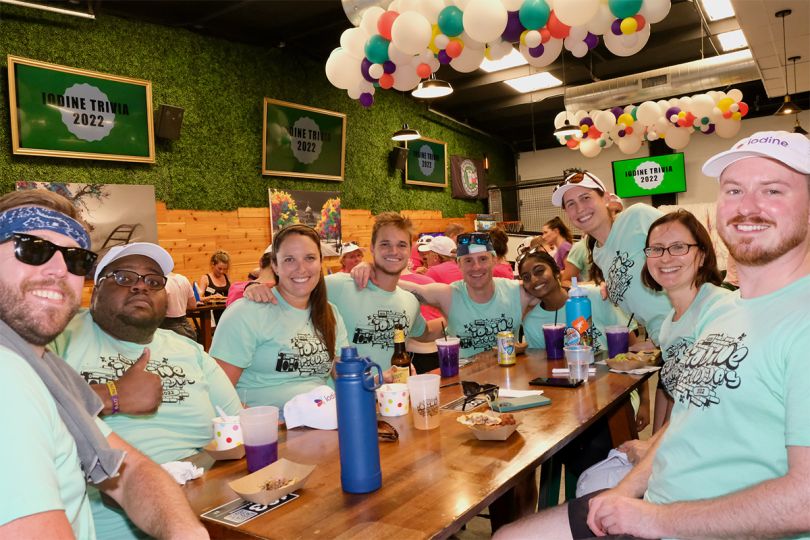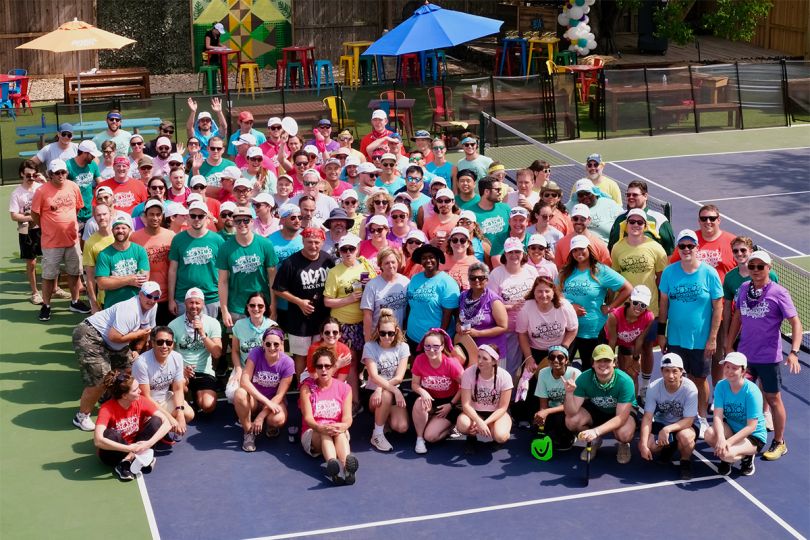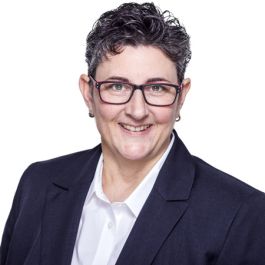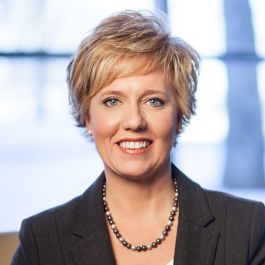When Clinical Program Manager (CPM) Darla Martin started at Iodine Software five years ago, they were building a clinical team. And while the company was successful, comfortable success was never the end goal: Today, Iodine is striving for an innovative approach with industry-changing software and services.
Recent acquisitions, AI integrations and client growth are frequent subjects of conversation. Teams are scaling rapidly, and so are their impacts and responsibilities. CPMs like Martin rarely allow themselves to feel comfortable in their work, because that means they’re not pushing the boundaries of innovation in the ever-changing field of healthcare.
“Our initial product at Iodine was built with the goal of helping to solve everyday issues for our end users,” Martin said. “But we recognized that we’re also in a technology field, so it became essential to evolve and make things more efficient for our end users.” Iodine strives to get to that next best thing to impact healthcare delivery efficiencies
But what does that next best thing look like, and how can leaders like Martin strive to get there? By broadening the expertise pool of resources. After acquiring clinical documentation company ChartWise in 2021, their advisory services team began the transition into their new roles as clinical experts at Iodine Software. And according to Allyson Davis, vice president of advisory services, opportunities for continued success frequently begin with the clinical team.
Uniting two clinical teams into one
“The role of the CPM is vital to ensuring that our end users are well prepared and that they have every opportunity to be successful,” Davis said. “We’ve all been through a lot of change since the acquisition, but as change agents ourselves, it’s been a great way for us to better appreciate what we can now provide for our customers. We’ve made some great strides in this first half of the year.”
However, being at the forefront isn’t always an easy journey. Embracing innovation requires risks, yet with long-standing clients rooted in traditional methods of clinical documentation and services, building trust is also essential. And while technical terms like machine learning and algorithms are eye-catching and buzzworthy in many other industries, long-standing rules and checklists still reign in the traditional world of healthtech solutions.
“We have to leverage the technology to make sure our clients are looking at the right cases at the right time, so that they can clarify the documentation. For a long time things have been done a certain way, and we’re pushing to change that,” Martin said. “But when you see that light bulb, that’s the best outcome — that’s what our CPMs are constantly working toward.”
As Iodine continues to grow, Davis and Martin believe that the role of clinical program managers will grow in importance. For Advisory Services Manager Tiffany Murriel, that requires strategically positioning the clinical team to support product development and drive end-user adoption.
“Iodine is rapidly developing into a clinically inclusive culture that appreciates the value of clinical perspectives within an AI industry,” Murriel said. “We have to stay ahead — we have to know so we can teach our clients.”
What does a Clinical Program Manager do?

Describe the role of the CPM and its importance at Iodine. After acquiring Chartwise, how are you integrating clinical experts into their new roles in order to bridge those partnerships?
Darla Martin: There’s no day that is similar to another. We collaborate within every department and with each team member of Iodine. We help to provide the clinical and coding information that helps drive prioritization within our condition models. We work with our implementation and support teams, in support of our clients, doing audits and making sure that best practice is followed.
Tiffany Murriel: Partnerships were initially established through orientation and education to the Iodine solutions. The Clinical Program Managers and overall Iodine team fully embraced the ChartWise Advisory Services Clinical Team. The pathway to integration has been enriched by participation in key internal initiatives and collaboration opportunities with the Clinical Program Managers. Our combined clinical expertise strengthens our organization and our client experience.
Tell me more about the long-term goal you’re striving toward at Iodine. In order to be first to market, how do you continue building value every day through your individual work?
Allyson Davis: It’s a collaborative effort. Our growth and strategy teams are keeping a pulse on what’s happening in the market to discover new challenges we might be able to use our innovative technology to solve. Our team interacts with that research to ensure that the end users of our technology are prepared and ready, and that we’re meeting all their needs. We also make sure that we’re able to take that insight to the market in a way that’s appealing and fairly easy to implement for our clients, to work with them on those change management issues or new processes, and showcase where technology can really help facilitate and enhance efficiencies. In our market today, hospitals are facing staffing, revenue and retention issues, and our tech really looks to address that across the healthcare continuum.
Tiffany Murriel: We also remain diligent in staying connected with our customers. Through ongoing interactions and data analysis, we use the information to improve our products and overall client experience.
With acquisitions come growth and scaling. What are some of your current scaling goals for your teams, and how are you currently overcoming those in the modern market?
Darla Martin: You would think with the acquisition and having a bigger team that there would be no scaling issues, but we just continue to grow as a company. Not just with our staff, but the clients that we bring in. There’s just more and more need for our expertise and everybody brings their own skills.
Allyson Davis: Sometimes when you grow quickly, you outgrow yourself. I’ve been in other situations where that was the case and it is something you want to tackle head-on. So we have taken a step back to set the foundation for continued growth, look at how we might need to structurally realign ourselves — put managers in place to continue to help facilitate growing the team — while training and onboarding new team members.
We know that Iodine is never going to be a stagnant company. So it is an everyday challenge, and every day is a new day for us. But we’re definitely positioning ourselves in a way that we can grow thoughtfully and be ready to meet the new client growth that we are expecting.
Take me through one of the latest product releases or something you're currently working on. How has this helped you stand out among competitors in the market?
Darla Martin: I think one of the biggest projects we’re taking on at this point is leveraging our artificial intelligence to build better condition models. We’re in the process now of retraining our condition models with a more robust data set so that these condition models can perform at optimal levels of accuracy. We’re leveraging the software as a great efficiency tool, and that’s one of the areas where clinical not only has an impact on the product, but our end users really see and understand the use behind the software itself.
Allyson Davis: There are some areas in the field that we know need addressing — one of those being the outpatient space. We took a solution module that started on the ChartWise platform, and following the acquisition, we transitioned that into the Iodine platform to build the tech out. We have also incorporated the industry leading physician querying technology of our other recently acquired company — Artifact — into the Iodine Aware suite of products.
There’s so many growing scenarios that are swirling behind the scenes — some of which are just getting started, some that are further down the path and some that we don’t even know all the details about yet, but you can rest assured that nothing is sitting still. And there’s no stagnant component even with our signature solution, which is the concurrent prioritization piece.

What does helping clinical experts get ahead in their careers look like at Iodine? What support systems or programs are in place?
Allyson Davis: One of the things I have observed in my short time at Iodine is that there is opportunity for folks to take a look at other departments and see where they may or may not fit in a certain role. We’ve been working collaboratively with HR on developing those types of growth tracks and career advancement as a company-wide initiative, but particularly for our clinical team.
It’s great to work for a company that supports all types of growth and wants to see their employees be happy and successful. Our culture is so amazing in that aspect and in the way that Iodine embraces their employees. We can say that as new folks joining the team, that it was a breath of fresh air to experience such a tight-knit culture.
“We know that this is never going to be a stagnant company — we have growth models in front of us that show us how we’re looking to expand.”
Darla Martin: My new role is a perfect example. I’m moving from a CPM role — meaning that I was supporting the client, implementing the tool, training them to use it and to use best practices — but now I’m moving into a role where I will help the product team with innovation and product updates.
We’ve grown so exponentially that we want to make sure there is a career pathway within every department. That becomes a challenge for seasoned employees like us — we’ve been in our roles or healthcare careers for more than twenty years.







